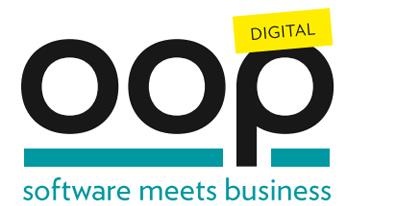
RÜCKBLICK AUF DAS PROGRAMM 2021
No Blame – More Flame! How Learning from Mistakes Can Help Us Thrive in Complexity
If you’re not making mistakes, you have no chance to learn enough! This is especially true in complex situations, where, more often than not, the difference between a success and a failure can only be seen in hindsight. Which is why it pays off to dare new things, even if that might mean you can go wrong–as long as you don’t make the same mistake twice!
In this interactive talk we will explore how psychological safety, creativity, complexity and motivation are connected. And we will exercise our “No Blame – More Flame” mentality.
Target Audience: Testers, Developers, Leaders, Managers, Teamplayers
Prerequisites: Curiosity and willingness to challenge one's own habits
Level: Basic
Extended Abstract:
Let’s remember, that in the beginning of IT and software development there was no chartered territory. There was no right or wrong path – great minds dared to venture on into new lands. And sometimes they failed. Spectacularly or subtle, with a chance of correction or at huge (monetary) sunk costs. But always with great learnings, albeit not always good documentation.
Yet in school and in life we often get punished for failures. And as a result, we learn that pointing the blame away from ourselves pays off. This is not only bad for the climate and culture in a team or in an organization, it is also detrimental when it comes to our ability to learn. Especially in uncertain and complex contexts, where this ability is crucial to survive and thrive. When we block our learning capabilities, we lose our powers to deal with the unknown, to adapt to new and emerging information, to explore solutions. This inhibits progress and kills motivation.
While most of the above facts are common sense or even common knowledge, it is quite hard to break the mental and behavioral habits we were taught throughout education and our work-lives.
In this talk I will summarize the concept of psychological safety and the effects of a psychologically safe culture on creativity and solution focus in teams. I will introduce a “tool” to adopt a more open-minded and learning focused mindset. The participants will get the opportunity to discuss how the tool can be applied in their individual contexts. Also, I will let the participants exercise a method which helps to change the interpretation of mistakes as something dangerous and evil to something viewed as valuable and helpful. The method uses failures as steppingstones to come up with improved solutions, which not only enhances the results but also lets us question our mistake-habits. Finally, I will wrap things up by speaking about how handling errors affects motivation.
Vortrag Teilen
Human Beings in Retrospectives - Body Language and Psychology
When facilitating retrospectives, there is often a focus on the agenda, the activities and the experiments you take away from the retrospective. Also, there might be a technical theme for the retrospective, but the people and the process for cooperation and communication is often what you end up discussing.
I will provide you with tips and tricks for how to avoid neglecting the human aspect of your retrospectives; the trust, the different personality types, the feeling of safety, and what you can pick up from the body language.
Target Audience: Facilitators, project leaders, managers, coaches, team leaders, Scrum Masters
Prerequisites: Have facilitated retrospectives or wants to facilitate them in the future
Level: Advanced
Vortrag Teilen


